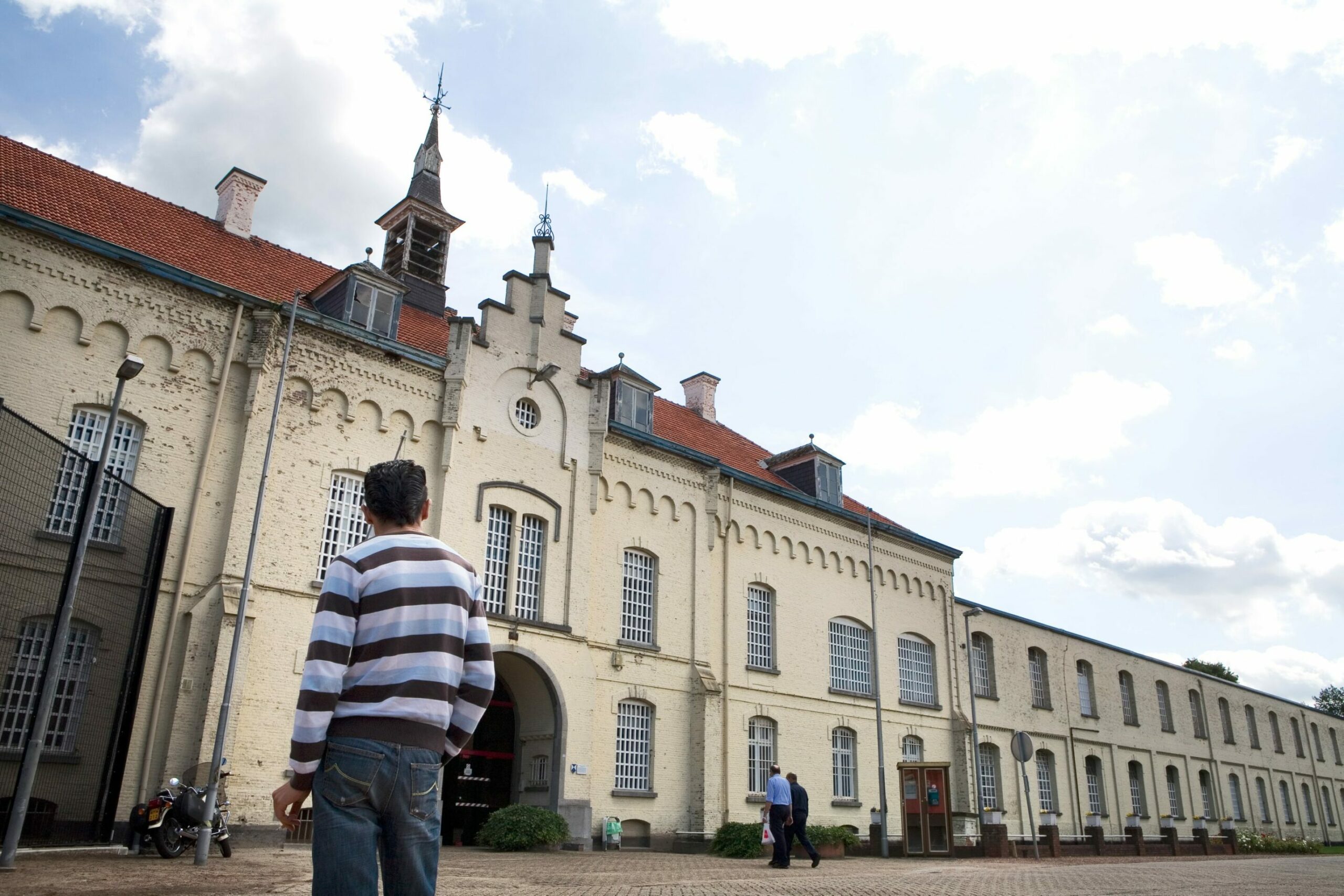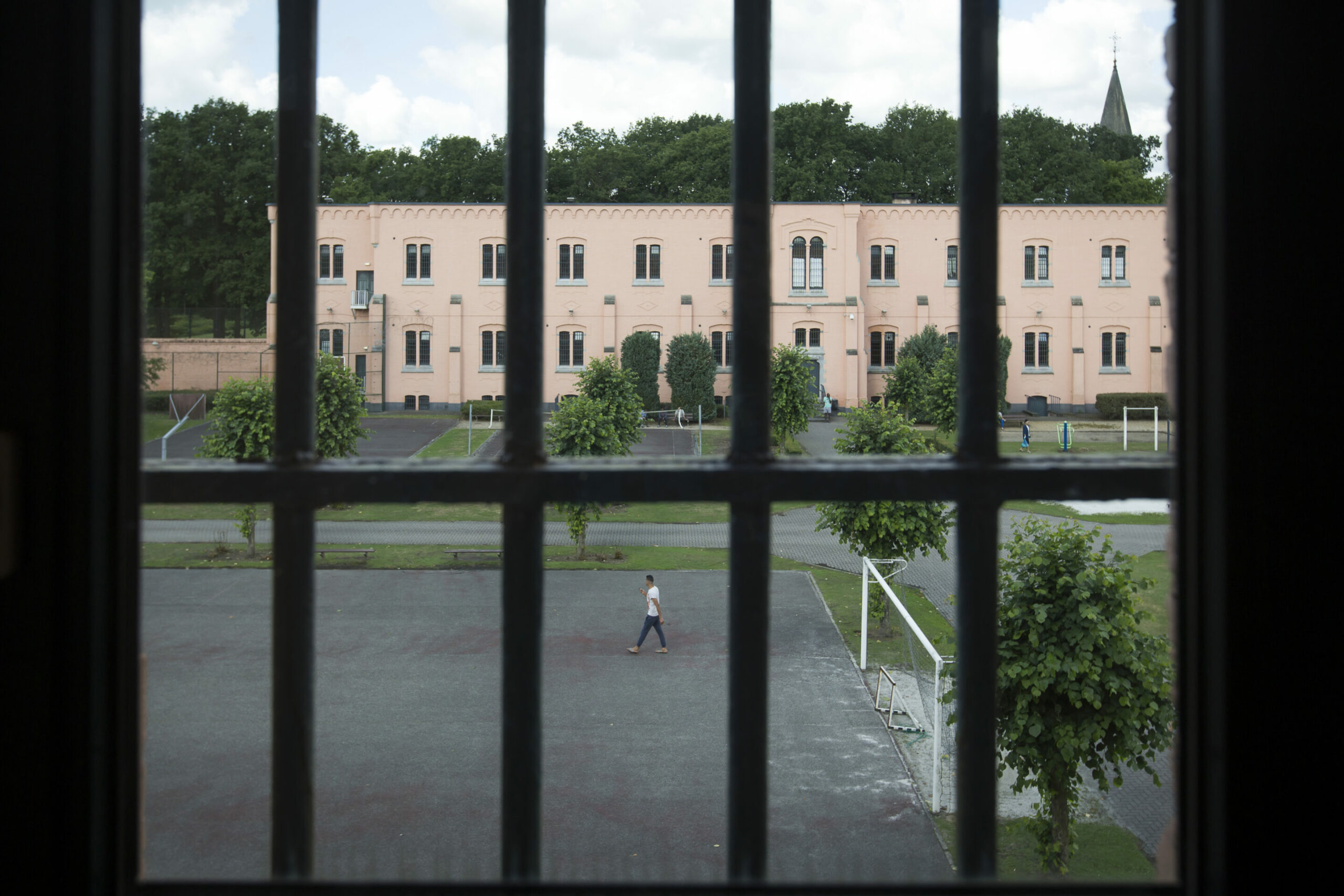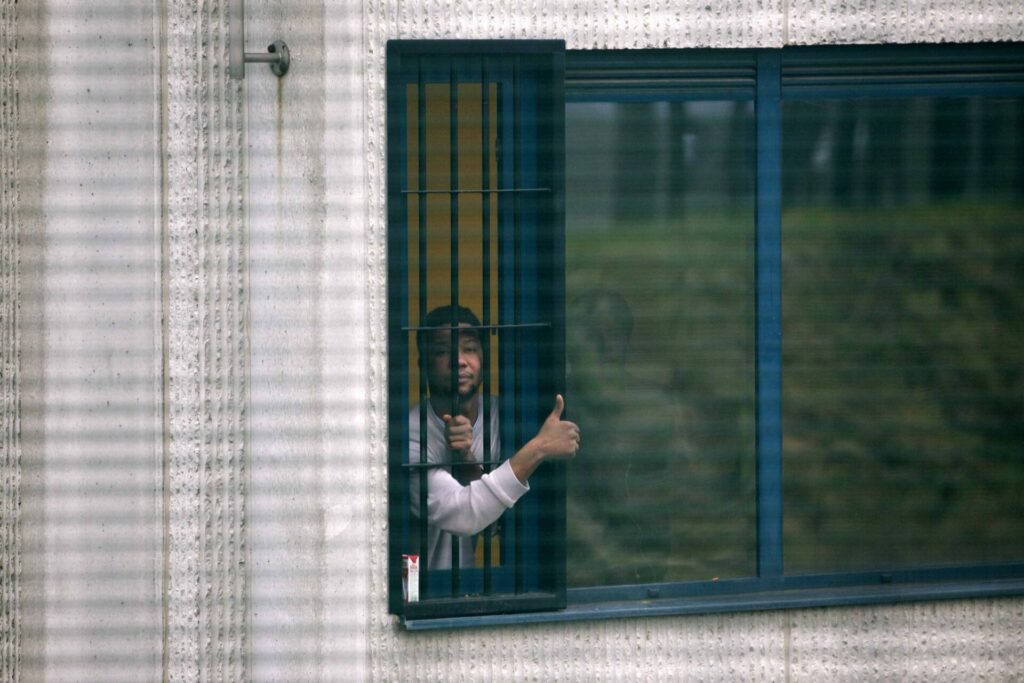Belgian detention centres are notorious black boxes, with limited access for external visitors and a reputation for opaque decision-making processes. MOVE Coalition visits detainees inside and has noted some worrying observations from testimonies in 2023, especially in the context of plans to ramp up detention of undocumented people.
The coalition consists of four non-profit organisations and has 19 visitors who speak to detainees across Belgium's six detention centres. The centres exist to house people who will eventually be deported. However, in many cases, deportation is legally impossible, or migrants come from countries that refuse to take them back. These realities reveal a significant contradiction at the heart of the system.
MOVE visited 794 people in 2023, representing less than 16% of the 4,915 people currently incarcerated. In 2023, the coalition noted grave mental health issues across the board. It also drew attention to the system's lack of transparency, as well as the need to end the incarceration of individuals who cannot be deported.
"Between 30-40% of people detained are released again. The Immigration Office knows it is impossible to deport them," Marijn Sillis, communications manager for MOVE, told The Brussels Times. "People endure months of trauma for no reason. [The system] is totally useless."
'Helpless' mental health conditions
People are sent to detention centres when they are unable to produce papers during police checks (asylum seekers are also detained upon arrival at the airport). Some of the people who experience these checks are non-white people living precariously on the street, and are often already experiencing mental health issues. Erratic behaviour therefore quickly attracts police attention.
For this reason, "people who are already very vulnerable are more at risk of detention," Sillis explained. Once inside, "they are put in a cell where they languish, and some even go non-verbal. Anyone else would be brought to a hospital but [because they are undocumented] they are detained."
Stretched medical services have a negligible impact on all detainees, whether they are struggling with mental health or not. MOVE hears many testimonies of minimal medical care, and staff suspicion that detainees are feigning illness in the hopes of a positive impact on their case to stay in Belgium. This situation leads many to feel "helpless".
"They [tell staff], 'I don't feel well, I feel depressed. Can I speak to a doctor?' And there is a feeling that they are only saying it to get out of the centre. But the reality is that they aren't getting the medical and mental support they need."

Merksplas detention centre. Photography inside the building is banned. Credit: Belga / Kristof Van Accom
On 24 December 2023, one man died by suicide in Merksplas detention centre, located on the Dutch border next to Turnhout Prison (Antwerp province). As he was undocumented, authorities were unable to find and inform his family of his death. He was buried alone in the Merksplas cemetery this spring. Another suicide occurred in 127bis (near Brussels Airport) in March.
Other inmates have felt the impact of these events, according to one of MOVE's visitors: "Some inmates have clearly been scarred by this incident. It frightens them. Everything seems even more desperate."
Illegal detention
MOVE is determined to underline the illegal nature of many detention cases. For instance, it is legally impossible to deport a woman who is 28 weeks pregnant or more. Visitors met with three pregnant women detained in Holsbeek (Flemish Brabant) in 2023, and although they were under the 28-week mark the coalition is against the detention of vulnerable categories such as pregnant women.
Moreover, MOVE identified five detainees who were minors in 2021 – another category that cannot be legally deported. Stateless people are also regularly detained, such as Roma people and Palestinians. In these cases there is nowhere to send them back to.
Faced with these fundamental structural flaws, MOVE is calling on the Federal Government to review the pre-existing system rather than expand it: plans to spend €100 million on the construction of four more centres are already underway.
In addition, Sillis warns that the decision to deploy EU border agency Frontex at Brussels-Midi Station and Brussels Airport in Zaventem is a worrying development for human rights.

The closed centre for undocumented immigrants. Credit: Belga / Kristof Van Accom
"Detainees are complaining about medical care and legal assistance," Sillis said. "These issues should be resolved rather than building any more centres." In practice, this entails ending the detention of people who cannot be deported, using detention as a last resort and improving transparency across the entire system.
Every detained person costs the State at least €237 per day, and forced returns cost an average of €13 million per year between 2018 and 2022.

